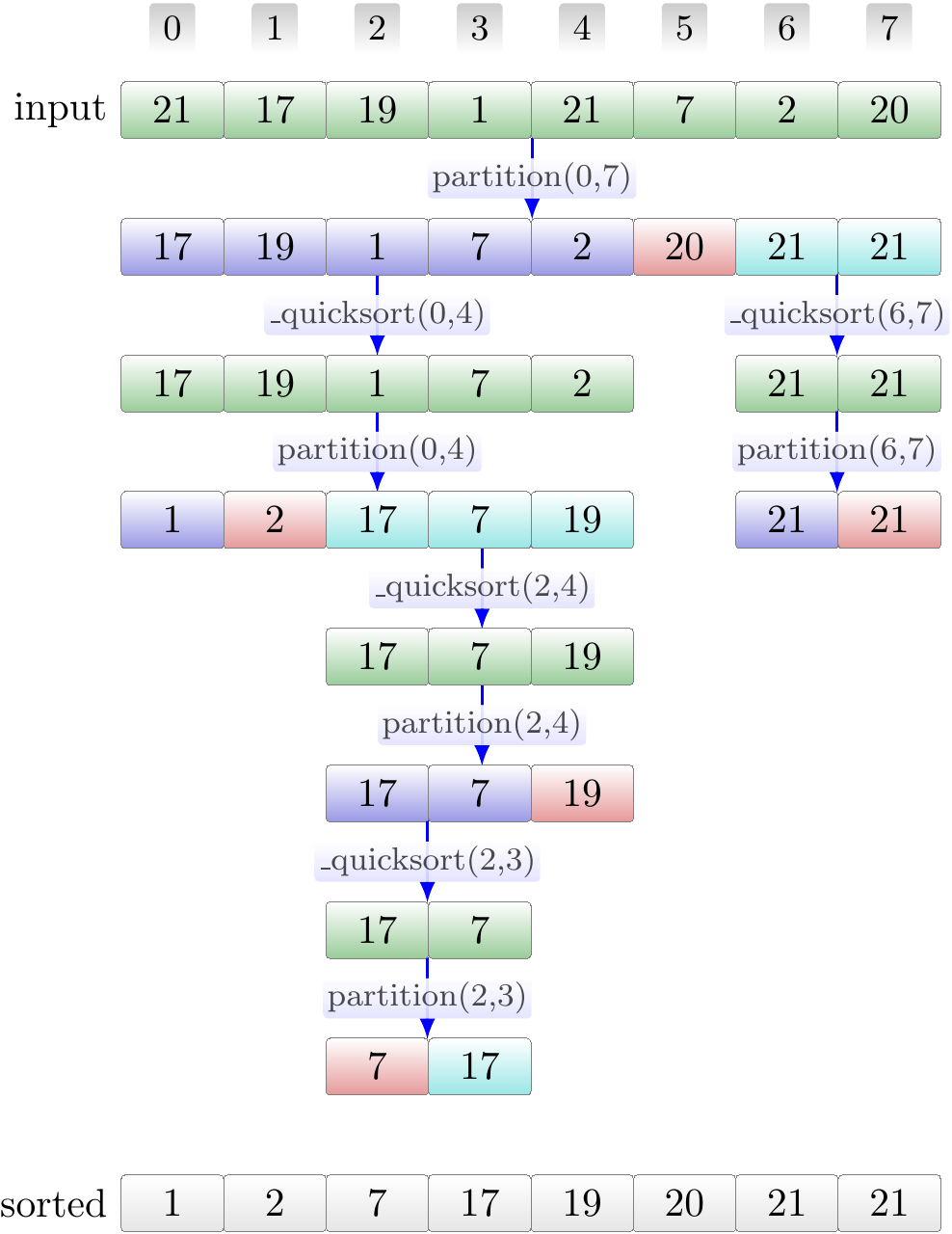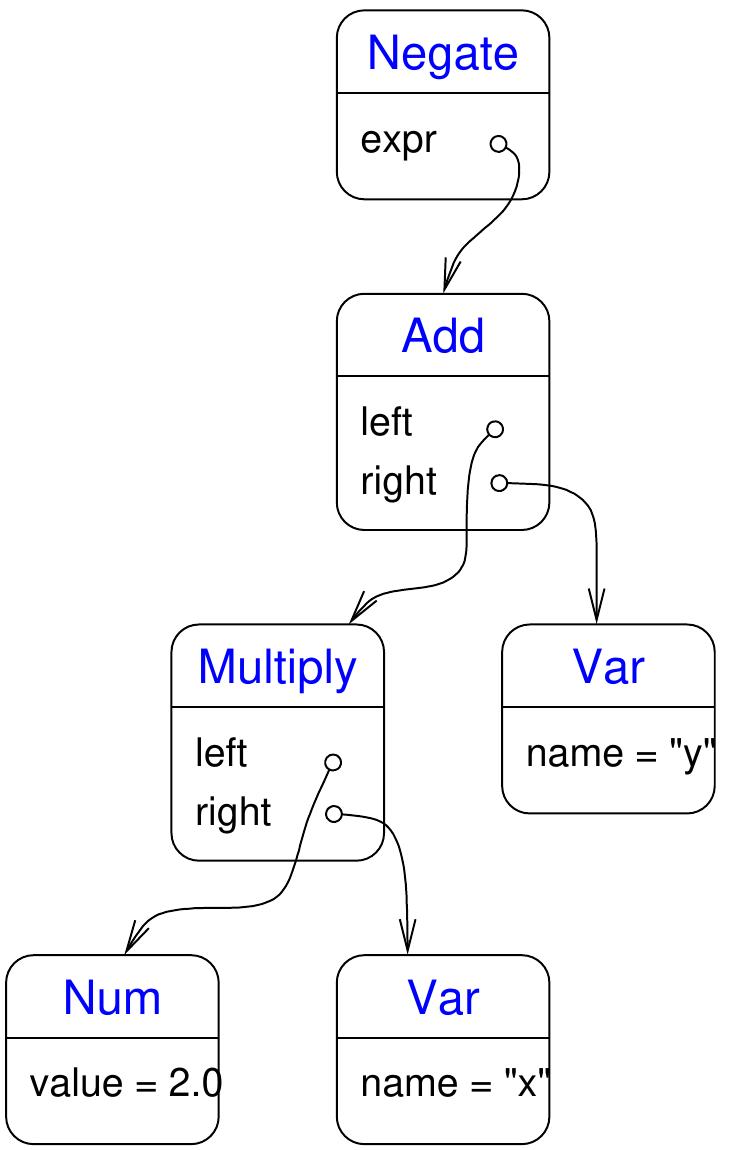Round 3: Trees¶
We have already seen trees many times:
Recursion trees in the CS-A1120 Programming 2 course and in this course.
“Parse trees” of formulas in the form of object diagrams in the “Expressions” part of the recursion round of CS-A1120 Programming 2.
And so on…
Trees are indeed a very common concept and data structure in computer science. In this round, we’ll take a closer look at trees
mathematically, and
as an underlying data structure for other data structures and algorithms.
For the second point above, we’ll see how to
implement priority queues with heaps, which are trees having some special properties, and
handle disjoint sets with union operations by using trees.
Trees are further discussed and used in following rounds as well.
Contents:
Material in Introduction to Algorithms, 3rd ed. (online via Aalto lib):
Binary trees: Appendix B5
Representing trees: Section 10.4
Heaps: Chapter 6
Union-find: Chapter 21
Similar material elsewhere:
Union-find: Section 1.5 in Algorithms, 4th ed.
Some external links:

